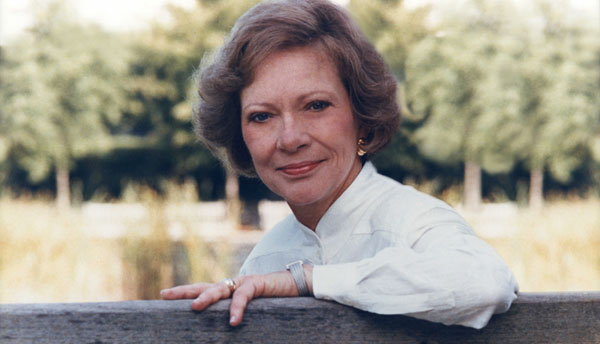LISTEN TO THIS ARTICLE:
This year marks the passing of former first lady Rosalynn Carter. She leaves behind a legacy deeply rooted in transforming mental health advocacy. Mrs. Carter’s work in this field began in the 1960s when she committed herself to addressing the pervasive stigma and resource gaps in mental health support. This dedication continued during her time as first lady in the 1970s. This was when Rosalynn Carter made mental health and fighting stigma her signature cause. She did this through the creation of the President’s Commission on Mental Health.
First lady’s focus
Carter’s impact was profound. Her efforts led to increases in research funding, broader treatment access, and innovative approaches to mental health care. At a time when mental health was often overlooked or misunderstood, she became a beacon of hope for people facing conditions like depression and anxiety. Her work fought stigma and emphasized that mental health is a treatable medical condition, no different than a physical ailment.

The Carter Center
Mrs. Carter’s impact extends far beyond her time as first lady. Even after leaving the White House, she continued her leadership through The Carter Center in Atlanta. In 1985, she initiated the Rosalynn Carter Symposium on Mental Health Policy, bringing together representatives of mental health organizations nationwide to coordinate efforts on key issues. Over the years, these meetings explored topics ranging from mental illnesses in the elderly to stigma and mental illnesses.
Recognizing the need for local collaboration, Carter instituted an annual Georgia Mental Health Forum in 1996. This focused on developing solutions to build a healthier mental health care system. The Carter Center Mental Health Task Force, chaired by Mrs. Carter, met quarterly to identify policy initiatives. They set the agenda for The Carter Center Mental Health Program and annual symposia.
One of the most successful programs launched by Mrs. Carter was the Rosalynn Carter Fellowships for Mental Health Journalism. These fellowships combat the stigma associated with mental illnesses by supporting journalists in reporting accurately and sensitively on mental health issues.
Through the Rosalynn Carter Institute for Caregivers, Mrs. Carter addressed the concerns of those caring for people with mental illnesses and other chronic conditions. Established in her honor at her alma mater, Georgia Southwestern State University, the RCI promoted the mental health and well-being of individuals, families, and professional caregivers through research, education, and training.
Fighting stigma
Mrs. Carter was at the forefront of fighting the stigma of mental illness for over 45 years. Her contributions have also been recognized with numerous honors and awards. These include the 2018 Bill Foege Global Health Award, the Presidential Medal of Freedom, and induction into the National Women’s Hall of Fame.
In her book “Within Our Reach: Ending the Mental Health Crisis,” Mrs. Carter issued a call to action. She wrote passionately about creating equity for mental illnesses in our health care system. The book, co-authored with Susan Golant and Kathryn Cade, provides a deeply personal account of her advocacy and an unsparing assessment of the state of mental health care.
As we remember Rosalynn Carter, let us honor not only a former first lady but also a champion of mental health. Her commitment paved the way for progress in mental health advocacy and the ongoing fight against stigma. Above all, her legacy lives on in those she empowered and in the continued efforts to build a world where mental health is prioritized, destigmatized, and treated.

 Learn
Learn Read Stories
Read Stories Get News
Get News Find Help
Find Help
 Share
Share
 Share
Share
 Share
Share
 Share
Share



